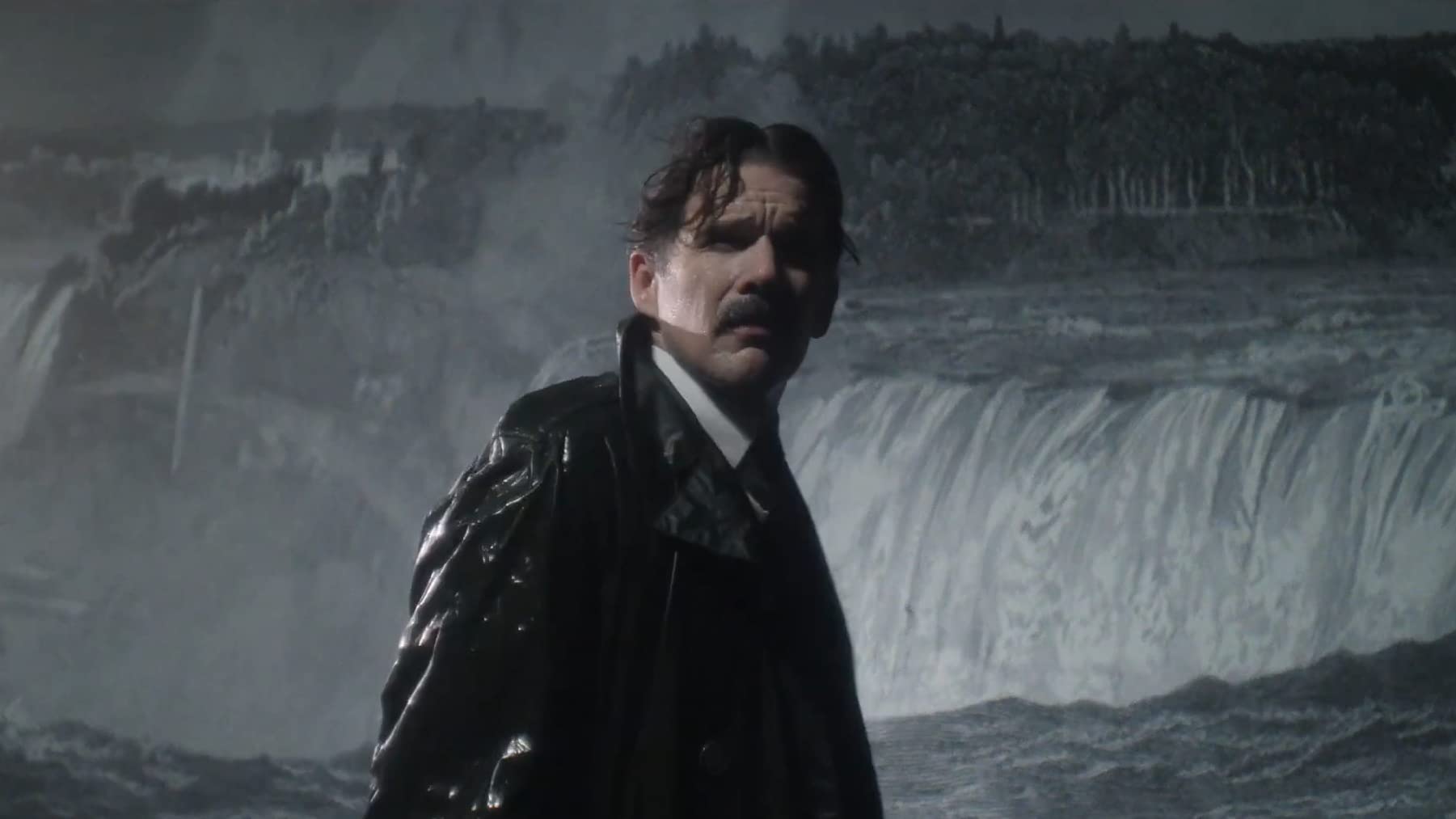The feud between Nikola Tesla and Thomas Edison has, like many histories lost to time, been reduced to a bifurcated battle between ideologies: Tesla the communist, generating free energy for the entire world, versus Edison the capitalist, squashing the utopian dream in favor of commodified power. The narrative is attractive and a useful cudgel, but a cursory glance at the world around us lays bare its distance from reality. No human exemplifies a worldview; no conflict is free from ambiguity. But in the absence of the whole truth, the narrow view of the political lens is, admittedly, an exciting way to revitalize history—accuracy be damned. Tesla, the new biopic from Michael Almereyda, damns accuracy to the deepest hells in the pursuit of revitalization.
It doesn’t take long for Tesla to smirk at the idea that it’s “biographical”. It opens in media res on Tesla roller-skating through a mansion, the narrator interjecting with one of the inventor’s more abstract quotes: “is nature a gigantic cat? If so, who strokes its back?” Two scenes later, he’s reminiscing with a man who inexplicably vanishes into thin air, while the air around Tesla’s face bends and wavers as if lit only by candlelight (which might’ve been the case—the film’s spartan lighting setups are the closest it gets to period accuracy). The immediate impression is that we’re going to spend less time learning about Nikola Tesla and more time adjusting to the film’s quaint rhythms.
But that’s more or less the point. Almereyda is demonstrably aware that we’re too far from the historical Nikola to replicate him honestly, and that our impressions of the man are too muddied by mythmaking to sort fact from fiction. So, in the time-honored tradition of “if you can’t beat ‘em, join ‘em”, Almereyda’s film dives headfirst into the mythmaking process, engaging in transparently exaggerated narratives and calling itself out for doing so. By the time the narrator interrupts an ice cream fight between Tesla and Edison to scroll through Google Images results for Nikola Tesla (thus proving how little there is to go on), it’s clear that the film’s quaintness lies in its playfulness. Between its Old-Hollywood-esque painted backdrops, stagey production design, and strange anachronisms—in one scene, Thomas Edison casually withdraws an iPhone from his pocket—Tesla is constantly making plain its own artifice. In that same Edison/iPhone scene, there are three Twin Peaks references so comically blatant that Almereyda might as well have credited David Lynch as stylistic inspiration. The lie of an objective viewpoint of history crumbles along with the fourth wall.
But aside from the fun it has with self-reflexivity, what does Tesla have to offer? In its rejection of the factual biopic lark, it turns instead to playing up the ideological conflict: Tesla’s altruistic ambitions thwarted by capitalism’s fear of equal progress. The parasitic nature of capitalism is so persistently excoriated by the film that even its characters fade behind their talking points. That’s okay, given that the characters are decidedly not the focus of Tesla—but this ideological war is a tale as old as America, and Tesla does little to illuminate it in a new light. “Capitalism kills the best ideas”, sighs the film wearily, donning a silly hat to dispel the notion of impartial seriousness. “But we both knew that already.”
The sense that Tesla is throwing its hands up does give the film some lasting power, though. When all is said and done, the fun moments—and there are some standouts in that department, including a confounding and hilariously out-of-place karaoke scene—come off as attempts to squeeze enjoyment out of a dark world, one that would’ve been brighter if Tesla had his way. The feeling that we missed the deadline for a better world but enjoyed ourselves along the way shouldn’t be unfamiliar, and maybe the use of Tesla as a conduit for that feeling isn’t the craziest idea.
★★★ (3/5)




